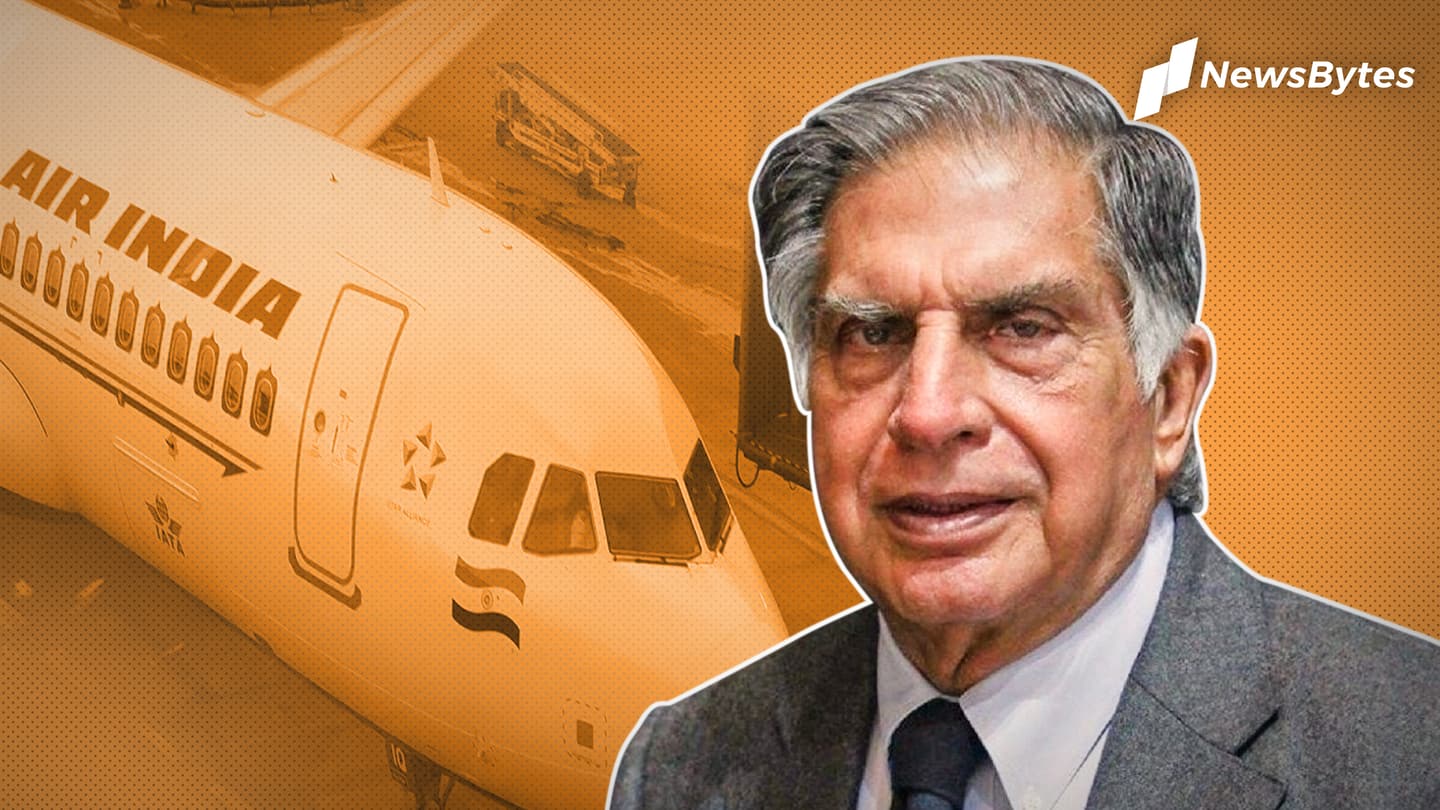
Decades after exit, Tata Group expresses interest in Air India
What's the story
One of India's largest conglomerates, the Tata Group, has submitted an expression of interest for acquiring the beleaguered national carrier Air India.
The latest development assumes significance as Tatas had quit Air India in 1953, seven years after Tata Airlines was named Air India.
Even after the government purchased a majority stake in the carrier, its founder JRD Tata remained the chairman till 1977.
Details
Air India's survival is at stake
Last year, Civil Aviation Minister Hardeep Singh Puri claimed Air India would be forced to shut if it isn't privatized.
In May 2018, the first attempt to sell Air India remained unfruitful as no suitors were found. However, this time around, many, including a group of 200 AI employees, are reported to have expressed interest.
Ajay Singh of SpiceJet is also eyeing Air India.
Bids
Tatas expected to submit financial bid in next 15 days
A report in NDTV said the EoI was submitted to Disinvestment Ministry. The government had set the deadline for 5 pm today. Yesterday, Puri said the ministry would divulge the details when the time is ripe.
Notably, the Tata Group has just submitted EoI; no financial bids have been made yet.
The company is expected to place financial bids in the next 15 days.
Expectations
New owner will have to clear Rs. 23,286cr of debt
Once a bidder is finalized, they will be asked to pay Rs. 23,286 crore of the total Rs. 60,000 crore debt of the airline. The remaining money will be transferred by the Centre into Air India Assets Holding, a special purpose vehicle.
As per reports, the Tata Group has expressed interest through AirAsia India, where it owns a majority stake.
Vistara
Reportedly, Singapore Airlines isn't interested in AI's privatization
Tata Sons is already a part of the aviation business, as it runs a full-service carrier, Vistara, along with Singapore Airlines.
The company's partner, Singapore Airlines, chose against participating in the privatization, as it would increase its mounting financial woes.
This year, the Southeast Asian company reported its biggest quarterly loss as the coronavirus pandemic spelled doom for the travel sector.